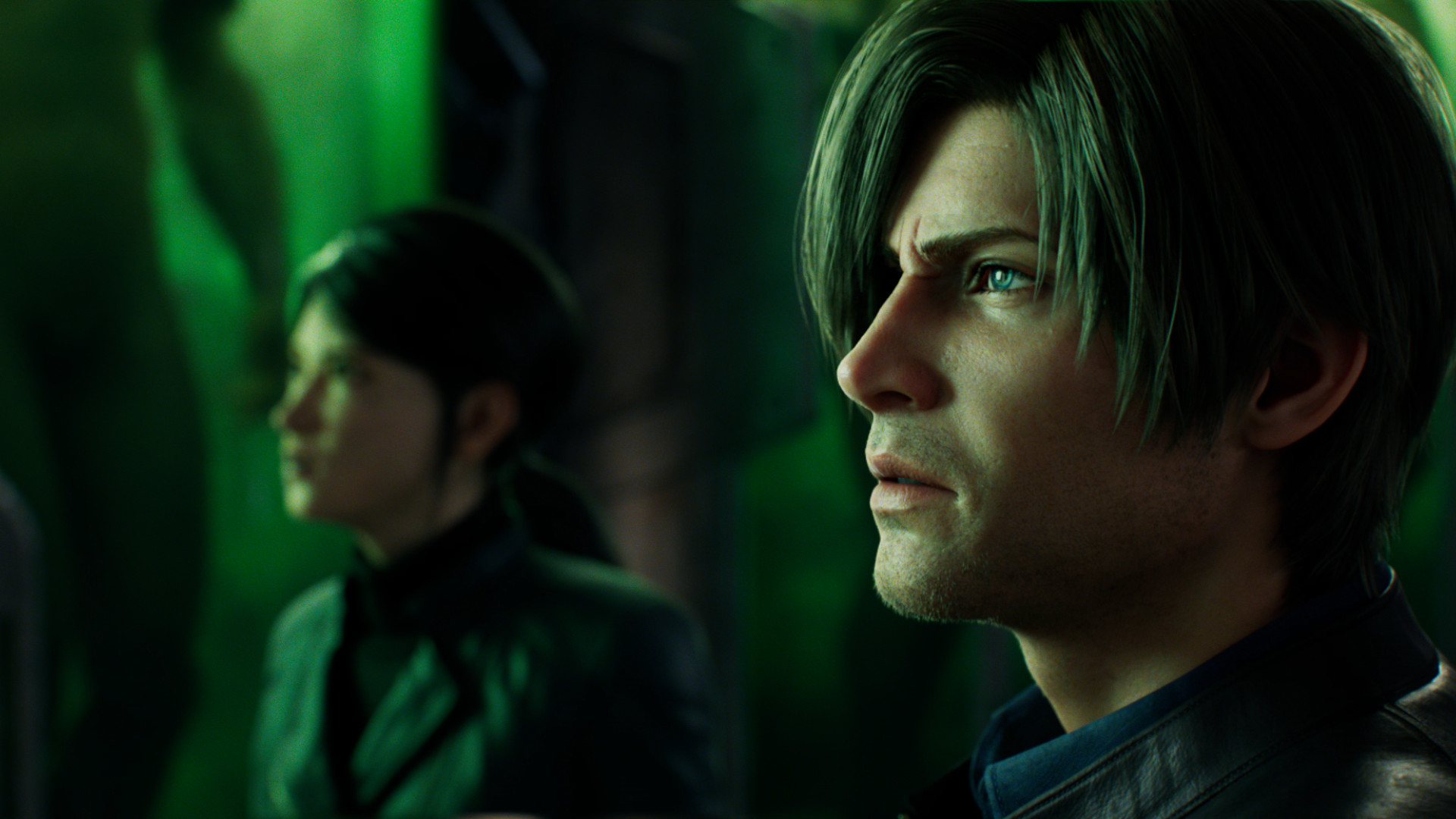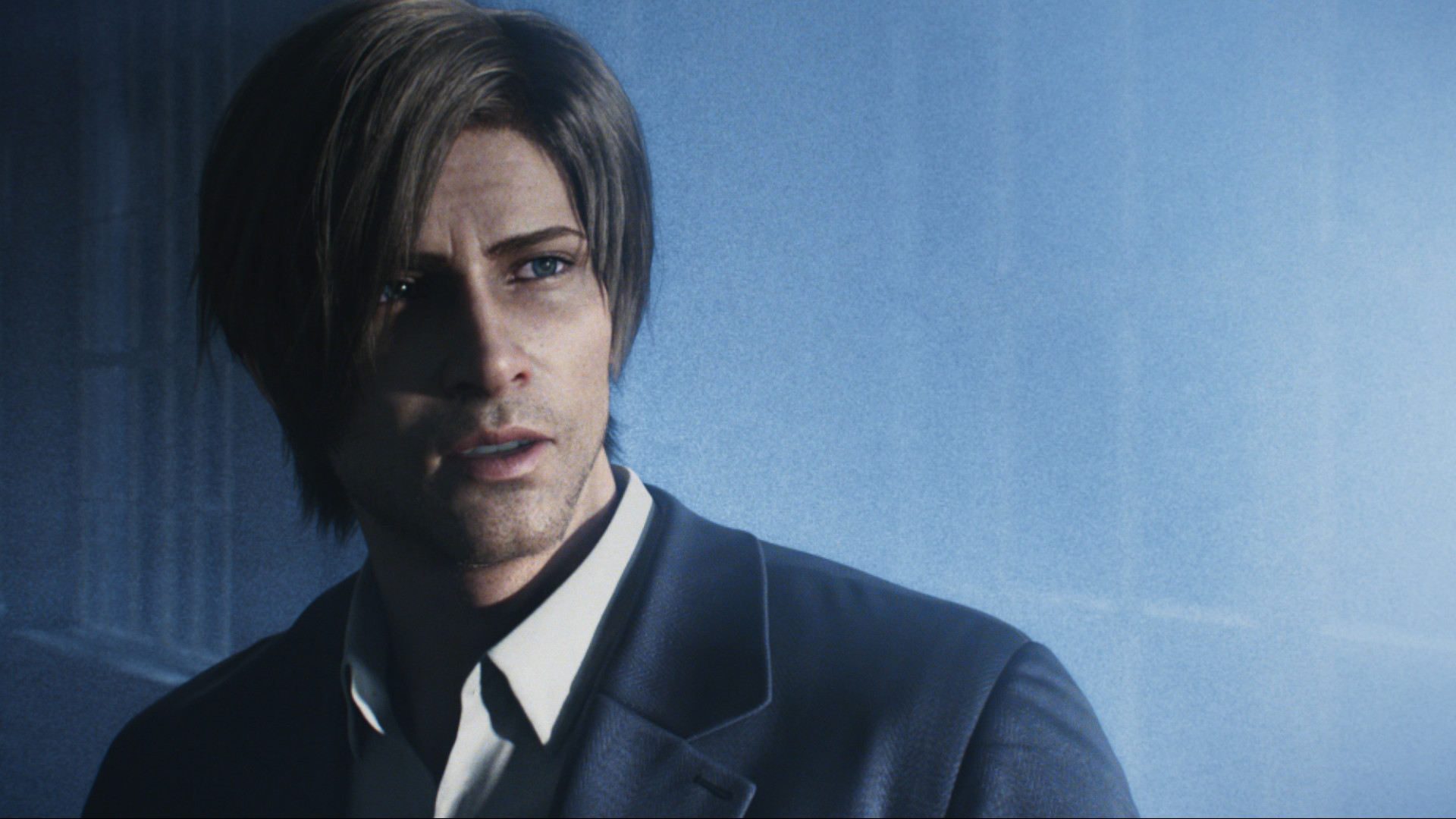When does Resident Evil: Infinite Darkness take place in the franchise's timeline?
Here's how the new Resi Netflix series fits in with the games

Resident Evil’s timeline is a lot like one of the series’ trademark lab experiments: an unwieldy beast that brings in lore from the games and CGI movies to create an abomination that even the boulder-punching Chris Redfield would find hard to tackle. Throw the new Resident Evil Netflix series Infinite Darkness into the mix and things are in danger of reaching critical mass.
While Resident Evil: Infinite Darkness brings in franchise mainstays Leon S. Kennedy and Claire Redfield for a new mission it, mercifully, doesn’t muddy the timeline waters too much. Below, we’ll break down how the new show fits into the Resident Evil timeline – without breaking your brain.
Where does Infinite Darkness fit in the Resident Evil timeline?

Simply put Resident Evil: Infinite Darkness takes place (mostly) in-between two mainline games: Leon S. Kennedy’s rescue of the President’s daughter in Resident Evil 4 and the Uroboros-infested events of Resident Evil 5.
In terms of dates, Infinite Darkness is set in 2006. That’s eight years after 1998’s Raccoon City incident (events featuring Claire Redfield and Leon S. Kennedy shown during Resident Evil 2 and the concurrently-run Resident Evil 3: Nemesis). Infinite Darkness also takes place two years after Resident Evil 4 (2004) and three years before Resident Evil 5 (2009)
This is where things get slightly trickier. Not least of which is the series’ reference – and flashbacks – to the Penamstan Civil War. While the fictional country has no real bearing on the wider Resident Evil story so far, the events – and zombie outbreak – takes place in 2000. That’s important. It appears to be, canonically, the first time any man-made, zombie-causing virus reaches foreign shores after several US-based incidents.
There are also the CGI movies to consider, especially when factoring in Claire Redfield’s current career path as a member of TerraSave in Infinite Darkness. That organisation was introduced in the first CGI movie Degeneration, set in 2005, and then appears again in the game Resident Evil: Revelations 2.
The next CGI movie, Damnation, takes place in 2011, between the events of Resident Evil 5 and 6. The live-action movies, directed by Paul W.S. Anderson, are not considered canon with the games or CGI movies.
Sign up for the Total Film Newsletter
Bringing all the latest movie news, features, and reviews to your inbox
In short, this is how Infinite Darkness fits in to the mainline series and relevant CGI movies, with each entry’s date in brackets.
- Resident Evil Zero (July 1998)
- Resident Evil (July 1998)
- Resident Evil 2 (September 1998)
- Resident Evil 3 (September 1998)
- Resident Evil: Code Veronica (December 1998)
- Resident Evil: Infinite Darkness [Penamstan Civil War flashbacks] (2000)
- Resident Evil 4 (2004)
- Resident Evil: Revelations (2004-2005)
- Resident Evil: Degeneration (2005)
- Resident Evil: Infinite Darkness (2006)
- Resident Evil 5 (2009)
- Resident Evil: Revelations 2 (2011)
- Resident Evil: Damnation (2011)
- Resident Evil 6 (2012-2013)
- Resident Evil: Vendetta (2014)
- Resident Evil 7 (2017)
- Resident Evil: Village (2021)
Is Resident Evil: Infinite Darkness canon?

It might surprise you, but much of Resident Evil’s more intriguing lore and world building has taken place away from the main series of games. Spinoffs and CGI movies have often ruled the undead roost in that respect, and Infinite Darkness builds on it further.
While we won’t spoil the ties to the main games here, we can confirm that Infinite Darkness is canon and makes pointed references to prior games as well as setting up future instalments. You could say it all falls under one Umbrella. But we’re too good for that joke.
Fill up your watchlist with the best Netflix movies and the best Netflix shows.
I'm the Senior Entertainment Writer here at GamesRadar+, focusing on news, features, and interviews with some of the biggest names in film and TV. On-site, you'll find me marveling at Marvel and providing analysis and room temperature takes on the newest films, Star Wars and, of course, anime. Outside of GR, I love getting lost in a good 100-hour JRPG, Warzone, and kicking back on the (virtual) field with Football Manager. My work has also been featured in OPM, FourFourTwo, and Game Revolution.



